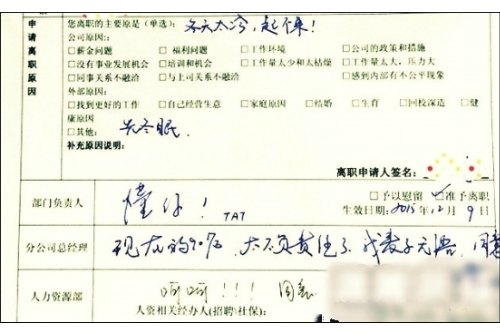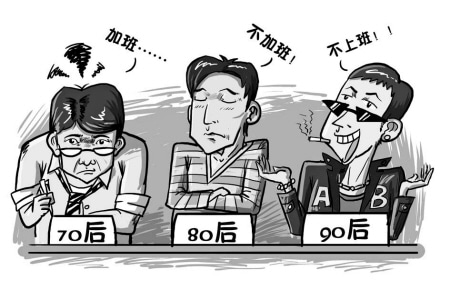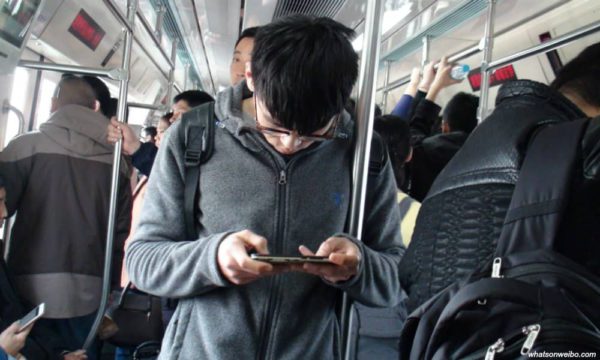‘Lazy’, ‘spoilt’, ‘pampered’, and ‘selfish’ – just some of the words that surface when you ask many Chinese people about the country’s ‘jiulinghou‘ (九零後), a term that is commonly used to describe those born into China’s new urban middle-class families between 1990 and 1999.
The generational differences between those born after 1970, 1980, and the Chinese born after 1990 have been a topic of discussion on social media for years. The generation gap seems to be especially apparent when it comes to views on work and career, and attitudes in the workplace.
One Weibo netizen recently wrote: “I have a new colleague who was born in the 1990s. The other day, she requested a leave of absence. We asked her what she was going to do. She said ‘I’m just going to get some plastic surgery done, but I’ll be back soon.'”
Last year, one recently graduated male real estate agent made the news when he quit his job because there were “too many women in the workplace”, which “negatively influenced” his personality. His resignation letter went viral shortly after.

A post-90s resignation letter went viral on Weibo.
Another resignation that made its rounds on social media was that of a Hunan female office worker who wrote her employer that she was quitting her job because “winter is too cold”, making it “difficult to get out of bed in the morning.”
The post-90s generation is often considered to be fickle and self-focused in their work. They are generally viewed as bad team players who are much less concerned about hierarchical relations at the workplace than China’s older generations are.
NOT ALL ABOUT THE MONEY
“There’s a big gap between what we imagined our work to be and what the reality is.”
Are China’s post-90s really that lazy and picky, or are they just tired? According to the song “I’m Dog-Tired” by the Shanghai Rainbow Chamber Singers, it is the latter. The song became an instant hit last year, as it resonated with China’s young professionals who recognized themselves in the lyrics.
The song describes the monolog of person who is caught up in overwork all the time, saying: “I haven’t washed my face for 18 days / I’ve been wearing my 30-day contact lenses for 2,5 years now.”

This Shanghai choir of young professionals scored a hit by voicing their dissatisfaction about working overtime.
But it is not just their everyday work that tires out the young Chinese working population, it’s also the job-hopping they do. According to research by the Mycos Institute, only 40% of China’s post-90s workers stay in their job for longer than two years. Within a time frame of three years, 8% has four or more different jobs.
What is the main problem of the post-90 workers that leads to all this job-hopping and sleepless nights? Is the pressure on China’s job market too much to handle for this only-child generation?
“The biggest obstacle to overcome for me and most of my friends is the fact that there’s a big gap between what we imagined our work to be and what the reality is,” Yue Xin tells What’s on Weibo. Yue did her Bachelor’s at a Shanghai college and recently completed a master’s degree in liberal arts at a British university.
“I read on Weibo the other day that, unlike the post-70s and post-80s generation, China’s young job-seekers prioritize personal happiness and freedom over anything else,” she says: “For many of us, a long-term contract does not feel like a reassurance but like a constraint, which might prevent us from taking on more exciting challenges. It is not all about the money – it is about following our passion.”
CHINA’S PRICELESS CHILDREN
“Around 8 million university graduates enter China’s job market each year.”
The high job expectations among China’s post-90s workers relate to their position in their families and in society at large. As described by Liu Fengshu (2015) in “The Rise of the ‘Priceless’ Child in China,” the so-called jiulinghou is a one-child generation that was born amidst the rapid socio-economic changes of post-Mao China, which saw a dramatic growth of both wealth and technological developments.
Parents and grandparents have both pampered and pressured these children; not just because it takes more than a high school education to succeed in a society that is changing so quickly, but also because the urban post-90s generation was the first to have access to education and career opportunities in a way their (grand)parents never had. They are therefore also often called the ‘lucky generation’ (幸运的一代).

Editorial cartoon from Chinese media. Left is the post-70s who says |I have to work overtime.” In the middle the post-80s generation saying: “I won’t work overtime.” On the right the post-90 generation saying: “I won’t work at all.”
But all this parental investment has also set the bar high for the future. Around 8 million new university graduates now enter China’s job market each year, but their chances of finding a job that suits their education and personal expectations are slim.
With all their high hopes and graduate diplomas, they are facing a job market mismatch. They often have no working experience and, as they have often spent years studying before entering the employment market, they are not willing to take on jobs with low education requirements.
‘LUCKY’ BUT STRESSED
“If any of these requirements are not there, it will be very stressful for us.”
Is the jiulinghou being unreasonable in what they expect from their work? A Beijing post-90er nicknamed ‘Pedy’, who teaches Chinese to foreigners at a Chaoyang educational institution, does not think so. She tells What’s on Weibo: “We all just want a job that (1) we find interesting, (2) suits our skills, (3) offers a reasonable salary, (4) is located not too far from where we live, and (5) gives us a sense of success or achievement. If any of these requirements are not there, it will be very stressful for us.”
‘Pedy’ mentions the cost of life in China’s bigger cities as one of the major problems: “The salaries of people just starting out on the job market are generally quite low, while the cost of living in cities like Beijing is very high. But if you live too far from your company, it means spending long and tiring hours crammed in public transport every morning and every evening.”

Because so many people do not find a job that meets their requirements, they either choose to remain jobless for some time to explore their possibilities, or to hop from company to company until they find what they are looking for. Unafraid of losing a job they do not care much for anyway, many of these post-90ers are those who have become known for quitting their job because of the ‘cold weather’ or other seemingly random reasons.
THE SO-CALLED ‘DREAM JOB’
“If we do not finish our projects in time, they will subtract an amount from our wages.”
Perhaps the biggest challenge faced by China’s well-educated, urban post-90s workers who are entering the employment market is the troubling Catch 22 situation at hand: they will be stressed and pressured if they do not find that top job, but when they do, they are often also stressed and pressured.
When scoring a much-desired job at one of the top companies (such as one of the ‘Big Four’ firms Deloitte, Ernst & Young, PricewaterhouseCoopers/PwC and KPMG), young workers will often do all they can to keep their job. These jobs come with relatively high salaries and future possibilities to higher positions, but they also go hand in hand with long hours and unpaid overwork. Those who refuse to work overtime will be labeled as ‘non-ambitious’ or ‘not loyal enough.’
Beijing resident Li Jiang has a good job that suits his skills, is not too far from home, has a good salary, and offers prospects for further growth. Despite his stable contract, he is used to working over hours and often does not come home until late at night.
“We do not get paid for overtime,” Li says: “But they just give us too much work to handle. If we do not finish our projects in time, they will subtract an amount from our wages, although this is not noted in my contract.”
Although (illegal) overtime may endanger workers’ health due to the excessive long working hours, it is still commonplace in China (Kim & Chung 2016). Over recent years, some stories of young professionals literally working themselves to death – also known by the Japanese term ‘karoshi’ – have made headlines.
In 2011, the story of the 25-year-old PwC auditor Pan Jie went viral on Sina Weibo when doctors concluded that her overwork at the company might have played a crucial role in her death.
Likewise, the behind-the-desk death of a 24-year-old Ogilvy employee in Beijing and the 2016 death of Jin Bo, a deputy editor-in-chief of one of China’s leading online forums, all prompted calls for increased public awareness on the risks of overwork – especially amongs young professionals.
Despite these headlines, Li continues working over hours: “Perhaps it’s in our culture. Nobody wants to be the one leaving first or sticking their heads out to ask about employee rights. Meiyoubanfa, it’s just the way it is.”
Yue Xin from Shanghai has something different in mind for her future. She has received job offers from several companies, but despite “feeling flattered,” none of them met her expectations. She is not lazy or fickle, she says; she is currently just looking for more interesting opportunities and is “following her passions” in Europe.
By Manya Koetse
Follow @whatsonweibo
References
Fengshu Liu. 2016. “The Rise of the “Priceless” Child in China.” Comparative Education Review 60 (1): 105-130.
Kim, S., & Chung, S. 2016. “Explaining Organizational Responsiveness to Emerging Regulatory Pressure: The Case of Illegal Overtime in China.” The International Journal of Human Resource Management 27(18): 2097–2118.
Spotted a mistake or want to add something? Please let us know in comments below or email us.
©2017 Whatsonweibo. All rights reserved. Do not reproduce our content without permission – you can contact us at info@whatsonweibo.com.
The post Facing Challenges: China’s Post-90s Generation and Their Employment Market Conundrum appeared first on What's on Weibo.




















